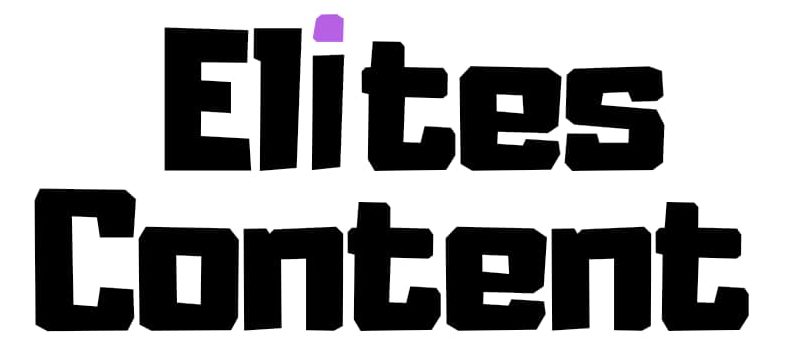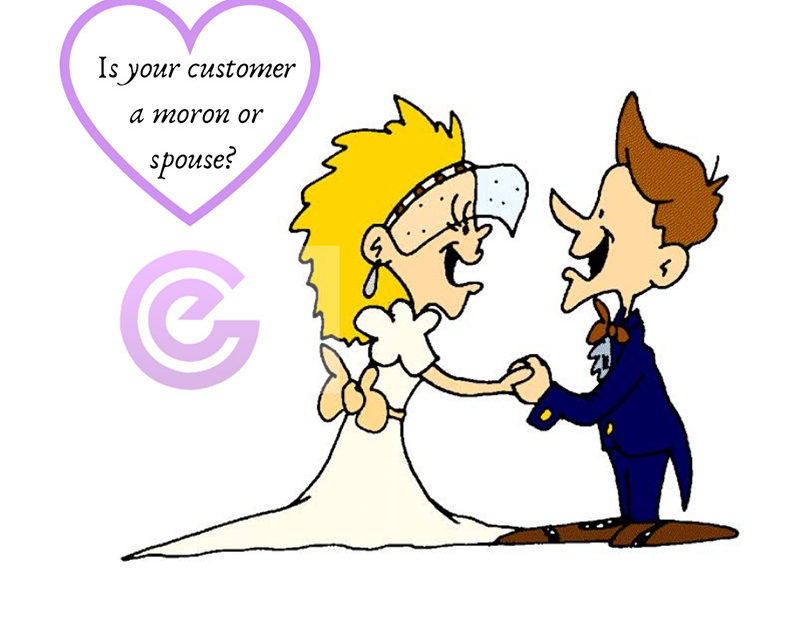Marketing insights 102 raises a very short but complex question that every marketer or business owner will need to answer.
Over the years, business and marketing frames of mind or philosophies have been on a revolving stage.
Successively, lots of business practitioners moved from production-oriented to customer-oriented approaches.
Importantly, the dynamic nature of marketing and the ever changing nature of customers have made most marketing experts to wonder if a customer is a moron or a spouse. Customers or consumers possess different buying characteristics that play part during their purchase process. Hence, marketers really need a critical look to deeply understand their customers.
This article was inspired by the 14th public lecture delivered on October 29, 2018, with the title “Customer: A Moron Or Spouse? “ by John Amue Gonewa, an Associate Professor and former HOD of the Department of Marketing, University of Port Harcourt.
After reading through this marketing insights 102, you will get a better guide on how to properly tailor your marketing strategies.
How Did The Big Question- “Is Your Customer A Moron or Spouse”, Began?
The question of whether your customer is a moron (stupid person) or your spouse (lovely husband or wife) started with the statement made by an advertising guru, David Ogilvy.
“The customer is not a moron, she’s your wife” is a popular statement attributed to him in 1955 which later surfaced in his book, “Confessions of an Advertising Man” in 1964.
 Image credit: Brandsone
Image credit: Brandsone
Ogilvy in his book expressed his displeasure over the too much hype and exaggeration of early advertising practices in the 1950s. He advocated for adverts to be presented to the customers with the view that they have human-intelligence (They can actually differentiate real from unreal).
Over time, lots of marketing experts delved into Ogilvy’s idea to also point out the importance of knowing and respecting customers. A good example is Austin McGhie, in his words, “the customer is you.” He pointed out that respecting and understanding your customers is key to success.
In the same manner, John Amue Gonewa, Associate Professor of Marketing at the University of Port Harcourt made vital contributions to the arguments of Olgilvy.
He added more lights to what is already known using students and Nigerian business practitioners in his examples. Here is a review of his contributions to the question of whether a customer is a moron or a spouse:

Marketing Insights 102: Amue’s View On Whether A Customer Is A Moron or A Spouse
John Amue began his argument by reviewing the origin of marketing concepts which began from the production concept. Over the years, businesses were carried out with less regard to customers’ will. There was much focus on the production, products, and sales than on the customer itself.
Hence, these business philosophies were heavily criticized over the years as the idea business and marketing thoughts began to take new shapes. You can read more about marketing philosophies in this related article:
Related: Marketing Philosophies: Organizations’ Thought Swayed their Actions
Understanding marketing philosophies or concepts will help you appreciate the question of whether your customer is a moron or a spouse.
So Who Is A Customer?
Generally, a customer is anybody, individual or group that consumes or uses a product; mostly for personal consumption.
Accordingly, John Amue also made efforts to explain who a customer is by citing Kendall’s definition that: “a customer (sometimes known as a client, buyer, or purchaser) is the recipient of a good, service, product or an idea – obtained from a seller, vendor, or supplier via a financial transaction or exchange for money or some other valuable consideration.”
In most marketing literature, the terms customer, buyer, and consumer are often used interchangeably. Allison Tanner made the definition of a customer clearer with his explanation-
You experience being a customer every time you buy food from a store, pay a cell phone bill, grab a cup of coffee from a local shop, or think about purchasing a new computer. A customer is any person or organization who might have an interest in buying, or has bought, products or services from a company. Allison Tanner
Looking at it from these points of view, you could see that everybody is a customer or consumer. Let’s take this example to drive my point home.
If Jennifer sells computer accessories and Jessica comes to buy, Jessica is a consumer or customer of Jennifer’s services. Also when Jennifer buys those computer accessories from the manufacturer say HP, then Jennifer is also a customer or consumer of HP services.
What’s the Relationship Between Customers and Business Organizations
The importance of customers to businesses cannot be overemphasized. Customers are the reason every business exists. The idea behind the significant roles of a customer to business survival is summarized in the statement “customer is king.”
John Amue agreed that customers are the foundation of every business. He added that their importance lies in their purchasing power which could make or mar businesses if not managed properly. He pointed out the rights, responsibilities of customers including a comparison of customers in the developed and developing nations.
Also, he expressed his thoughts in line with the popular saying that the customer is king. For him, the customer is king means:
- Seeing things from the customer’s’ point of view.
- It means more than customer service but giving the best.
- Allowing the customers or consumers to call the shots i. e. Let them speak and be the determinants.
- Acknowledging that customers are the most valuable stakeholders of every business.
What Are The Customers or Consumers’ Rights
The rights given to consumers gained more recognition after John F Kennedy announced the consumer bill of rights in 1962. These rights include:
- Right to safety: Consumers have the right to access products that will not be harmful to them and their environments.
- Right to be Informed: Consumers have the right to information in regards to the product before purchase.
- Right to be heard: Consumers have the right to seek redress in cases of unsatisfactory goods or services.
- Right to choose: Consumers have the right to select the variety of products to consume at any given time.
What Are The Responsibilities of Consumers/Customers?
- Be aware: Consumers are charged with the responsibility of trying to know about what they want.
- Beware: Consumers are supposed to be alert and assert some level of carefulness. Know when to stay or leave.
- Think Independently: A consumer need to have faith in his/herself. A consumer is supposed to learn how to take a personal decision and stand by its outcomes.
- Be bold: A consumer is supposed to be bold enough to speak out of faced with unsatisfactory cases.
- Make complaints in a fair manner: Consumers are charged with the responsibility of being fair and honest in making their complaints to the appropriate person or body.
- Respect the environment: A consumer is also responsible for the better looks of the physical environment. Therefore, care must be taking in what to buy, and what to eat. Consumers must avoid waste and littering of the environment.
Differences Between Consumers In Developed And Developing Nations
- The degree of awareness: Consumers in developed nations are more learned and exposed than those in developing nations.
- The degree of empathy: While there is a high level of empathy attached to consumers from the developed nations, empathy is at a lower level in the developing nations.
- Level of patience or tolerance: Consumers from the end side of developed nations enjoy a high level of tolerance compared to their counterparts.
- Level of assistance: In developed nations, business has more facilitates to ensure the customer gets what is needed efficiently. Unlike like as it is in the developing nations.
The Big Question in Marketing Insights 102- “Is Your Customer A Moron or Spouse?”
This question is the major focus of this article, and of course an important question for every business or marketing practitioner.
The big picture behind this advocacy is that advertisers or marketers need to understand their customers like a man understands his wife. Going by the idea that if you make your wife happy, you will get a good dinner on the table.
John Amue began answering the big question by explaining the meaning of a moron. For him, moron is a psychological term that means mental disability or mental retardation.
In his words, “customers are not morons but some customers act stupid; they refuse to be knowledgeable.” In this statement, he argued that even though customers are not morons, some customers assert some level of attitudes that make them look like morons.
In addition, he pointed out that some consumers could act like morons in so many cases such as:
- Trying to cheat the producer or company
- Being disrespectful to company policies
- Not ready to know what they are meant to know
But the truth remains that consumers are not morons. In most cases, some producers could cause some consumers to behave like morons. Especially when producers fail in carrying out their own responsibilities. Such as:
- Inability to satisfy customers
- Not being able to deliver value
- leading consumers into cognitive dissonance i.e. a state of discomfort
- Having customers pay for what services not received
What Are The Consequences Of Treating Customers Like Morons?
When a business treats customers as people who don’t have sense, they put their businesses on a big risk. Here are some consequences of treating customers like morons, as pointed out by John Amue:
- Lack of Satisfaction: Your customers will never be happy with you if they find out you are treating them like a moron.
- No repeat business: Any customer treated like a moron will not like to come back to repeat purchase or transaction with the firm.
- Negative word of mouth: A consumer that is treated like a moron will express his or her dissatisfaction to others. This may tarnish a business image
- No customer loyalty: A customer that is not treated as a wife will not be faithful to the business organization.
John Amue agreed with the idea of David Ogilvy that customers are not morons but spouses. He admonished marketing and business practitioners to use the skills they apply at home to make their spouses happy when dealing customer as well. He pointed out that customers are tired of the outdated or traditional customer service; hence, there are needs for turnarounds.
In the closing remark, he ended by saying “this is my story, this is my song, the customer is not a moron but a spouse. “
Further, his view gave me more insights on how to treat customers like a spouse. Application of these insights can positively change the relationship between a business and its customers.
Marketing Insights 102: How To Treat Your Customer Like A Spouse
- Spend quality time with your customer
- Help your customer achieve his or her personal goals
- Look out for customer’s interest
- Embrace technology to boost customer service delivery.
- Don’t hesitate in settling disputes. Disagreement may come just like we have it in case of husband and wife at home. Don’t try to sweep under the carpet.
Final Note
The question of whether a customer is a moron or spouse has attracted lots of debates.
I strongly agree that a customer is not a moron but a spouse. In fact, marketers who really want to be successful must see things in this light.
Marketing practitioners need to build a closer relationship with their customers to know when their taste, desire, and wants have changed. In some circumstances, customers have needs which are a fusion of wants i.e these needs can be transformed to wants and wants to needs.
Just like a man knows that when his wife is pregnant, she changes a lot. She changes in her wants, needs, type of clothes, kinds of food, etc. In the same manner, your customers must be closely related with, to know when their change moments come; in order to provide the desired goods or services.
Lots of marketing experts have expressed their thoughts on the subject matter. It’s over to you. Do you strongly agree or disagree that the customer is not a moron but a spouse?
I’ll be super happy to hear from you.

Jackson is an obsessed content marketing specialist. A brand storyteller, not a teller of stories. He is passionate about helping online businesses grow with compelling digital marketing strategies. Follow him on Twitter, LinkedIn, and Instagram.





